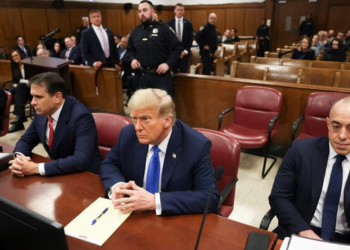
Oregon Gov. Tina Kotek and Democratic local officials have declared a 90-day state of emergency to combat rampant fentanyl use in Portland.
The emergency is part of an effort to revisit Oregon’s 2020 decision to become the first state in the nation to decriminalize small amounts of hard drugs such as heroin, meth and fentanyl.
Ms. Kotek, Portland Mayor Ted Wheeler and Multnomah County Chair Jessica Vega Pederson said their joint emergency orders will set up a command center to collect and report data on how fentanyl — a deadly synthetic opioid — is impacting downtown Portland and identify and address gaps in services for those addicted to fentanyl.
The effort will have a public education component about addiction, with transit signs, billboards, digital media messages and more. Officials will also distribute overdose-reversing naloxone drugs.
“Our country and our state have never seen a drug this deadly and addictive, and all are grappling with how to respond,” Ms. Kotek said. “The chair, the mayor and I recognize the need to act with urgency and unity across our public health and community safety systems to make a dent in this crisis.”
Portland is among U.S. cities grappling with ways to fix homelessness and drug addiction problems while improving the quality of life in downtown areas.
Efforts to clean up Portland’s fentanyl problem are part of broader revitalization efforts. The city was heavily impacted by protests in the summer of 2020, and outdoor retail outlet REI closed its only store in Portland last year, citing rampant crime and theft.
Ms. Kotek last month floated a plan to reconsider the 2020 drug-legalization measure by cracking down on public use of drugs, including a bigger police presence to deter drug use, and providing additional services and shelters for addicted persons.
Unintentional opioid overdose deaths in Oregon jumped from 280 in 2019 to 472 in 2020, 738 in 2021 and 956 in 2022, according to the Oregon Health Authority.
The data for 2023 is not yet complete, though Oregon officials said they are hopeful they can turn things around with emergency authorities.
“This is exactly the type of coordinated action needed to make a direct impact and a lasting difference,” Mr. Wheeler said.












